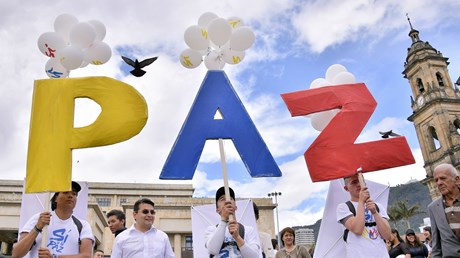Three seminary leaders explain how believers balanced justice vs. grace.

The longest-running conflict in the Western Hemisphere finally came to an end yesterday, after Colombia’s congress approved a peace deal with its largest guerrilla group.
However, in order to do so, lawmakers skipped over Colombian voters, who last month narrowly rejected a similar peace deal with the Revolutionary Armed Forces of Colombia (FARC).
The government has been battling the FARC since 1964, when a group of poor farmers and workers took up arms to resist inequality.
Half a century later, voters in October rejected the measure by the smallest of margins: 49.78 percent voted Yes to peace, while 50.21 percent voted No.
Faced with the choice of peace or justice, many Colombians objected to the government’s willingness to let most FARC soldiers walk free or reduce their sentences. And some evangelical leaders, sensitive to the recent legalization of same-sex marriage, spoke out against the deal’s “gender theory” language among other concerns.
While not all evangelicals voted against the measure, they were widely credited with turning the vote.
The strength of the evangelical vote was surprising in the Latin American country, where 80 percent of the population is still Catholic. It suggests Colombia is joining the rest of the region in the growing numbers—and growing influence—of Protestants.
More evidence of that: The first phone call President Juan Manuel Santos made after the failed referendum was to evangelical pastors, noted Rebecca C. Bartel in a thorough analysis for The Immanent Frame. Santos then met with 14 of them.
“The message was clear: Evangelical Christianity is no longer a fringe movement of Pentecostal garage churches,” wrote Bartel, a religious studies professor …
Source: Christianity Today Most Read